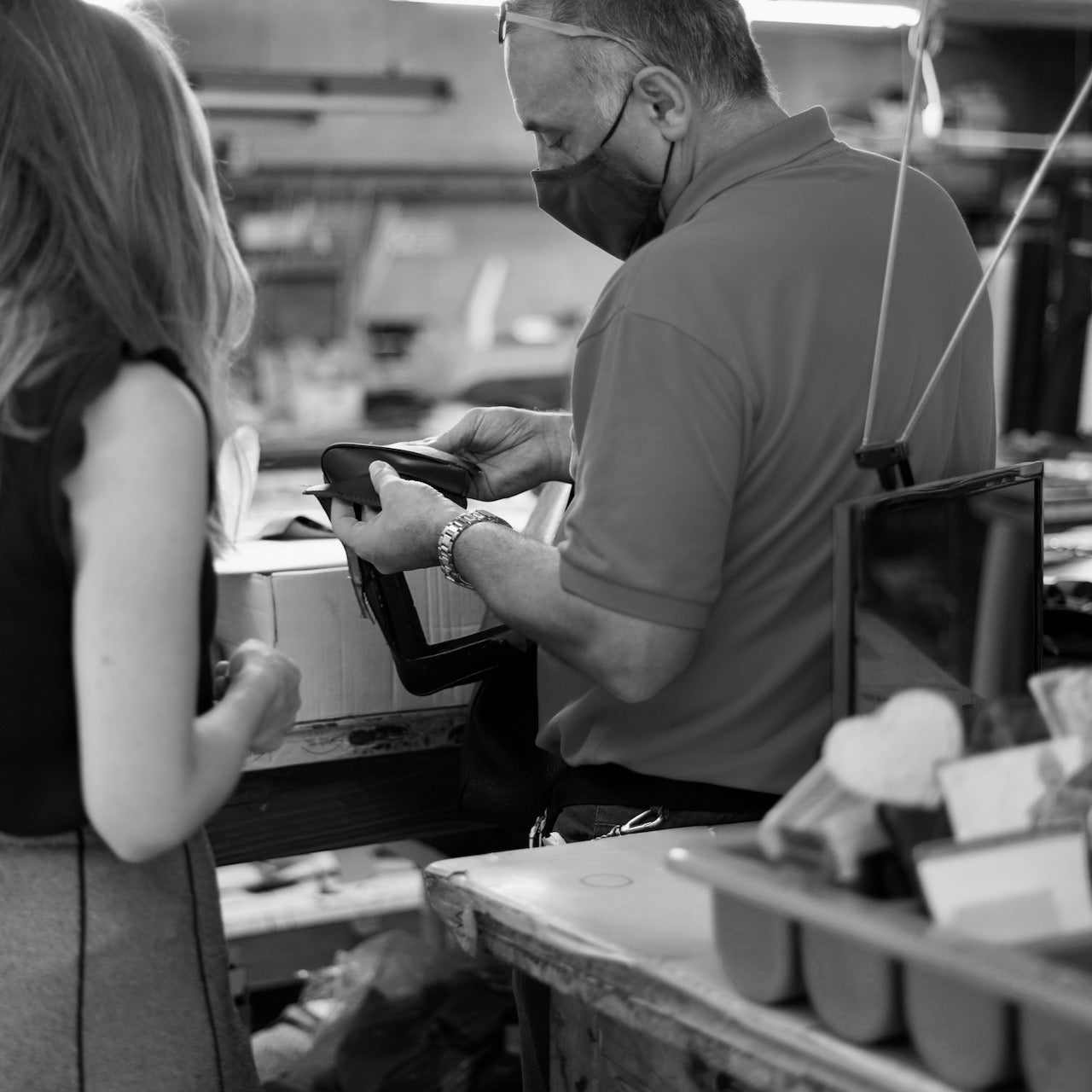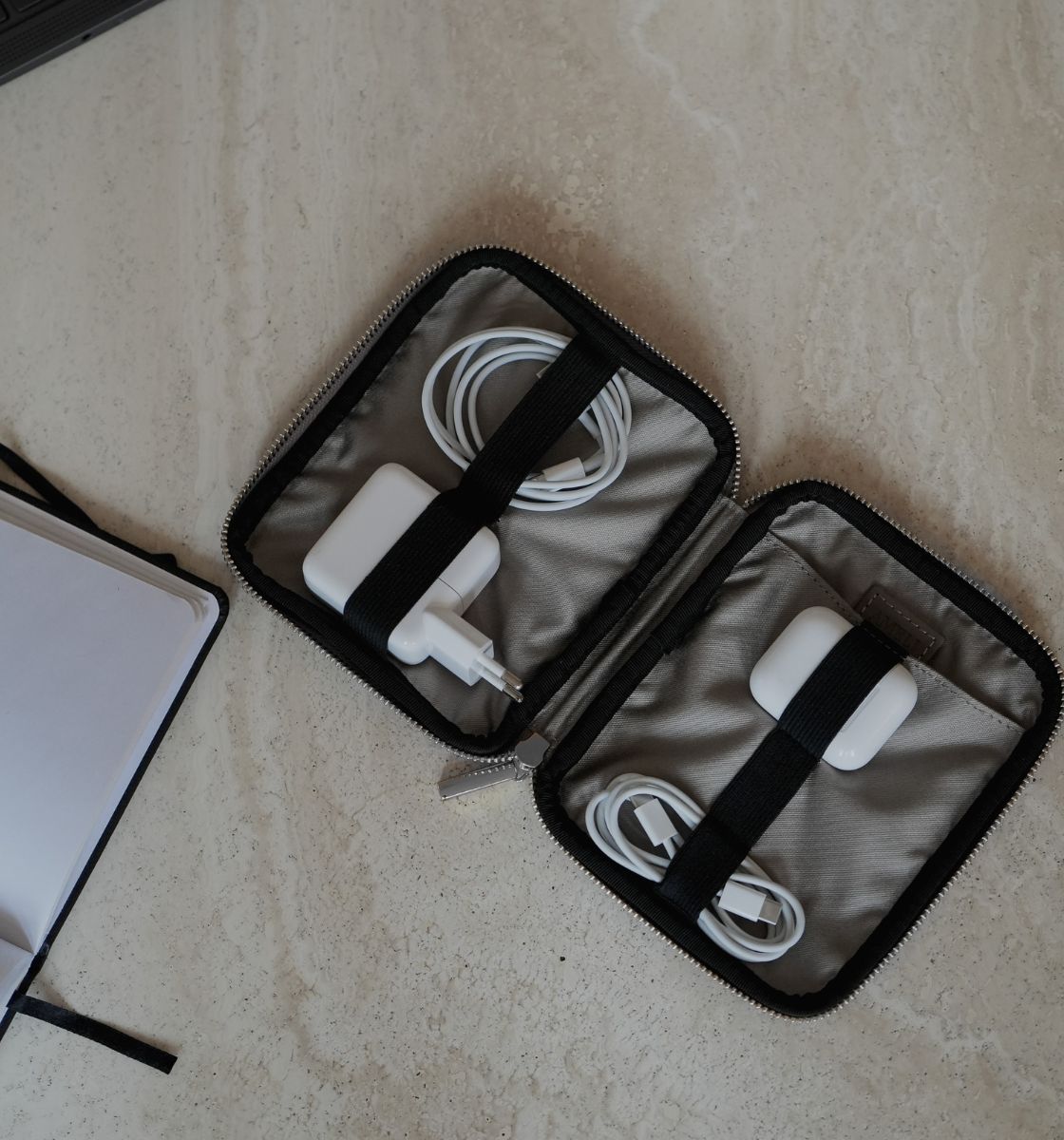Article: Made in Italy vs. 100% made in Italy? How to value our beliefs of integrity, craftsmanship and transparency

Made in Italy vs. 100% made in Italy? How to value our beliefs of integrity, craftsmanship and transparency
I believe in integrity, craftsmanship and transparency. We also want to convey these values through our brand AMELI ZURICH. Therefore, it was obvious to look for producers in Italy for our first prototype.
Made in Italy = premium quality from traditional companies - at least that was our naive illusion.
We were in Italy for 7 days and met with three leather goods producers; one "buying office" and two "metalware producers". During the trip, we more and more dealt with articles like "The Chinese workers who assemble luxury bags in tuscany" or "Made in Italy- the label fraud" and found ourselves in the articles.
But let us start at the beginning: Our first stop was right after the Swiss border, at a small family business. The offer for our bag was almost twice as high as from the cheapest suppliers. A bit outside, a bit hidden, we had a two-hour conversation with Carlo. Carlo runs the company with his brother and mother in the second generation. He looks at our prototype, mumbles improvements in Italian, recalculates his offer with countless variables on a paper with a calculator, runs into production again and again to clarify details with his brother. We are excited and fascinated at the same time. He reminds me very much of my father, who is the third generation running a metal construction company and is an absolute master of his trade. After countless discussions with his brother in production and numerous simplification ideas, Carlo presents us with a significantly improved offer. We are impressed and already thankful that we have sought personal contact. Carlo then proudly guides us through his factory, introduces us to his brother and mother and shows us his most interesting projects. Despite language barriers we are greeted with a smile by all employees. Impressed by the atmosphere, the unbelievable precision and passion we left the manufactory. Wow and this is just the beginning, we thought. It will certainly get even better as we travel to Tuscany, the Silicon Valley of leather processing.
After an appointment with a metal fittings manufacturer, we meet our partner near Florence. After a long selection process we had decided on our partner and together we developed the initial prototype. A "family business", "Italian craftsmanship" "manufacturing for luxury brands like x,y,z". The internet presence, the personal information and the Skype discussions had convinced us. On the way, west of Florence, we already notice some leather factories, which had their best times behind them, additionally a lot of Chinese workers on the street and behind the windows. At that time we had not yet dealt so intensively with the production history of leather processing in Tuscany. The date is running ok, all our suggestions for changes to the prototype can be implemented, the saleswoman assures us. There are no real suggestions for improvement from her side.
- Can we see the birthplace of our prototype and the production?
- No, you can only see the production of the prototypes. The actual production is outsourced, we work together with "the Chinese".
- Ok, would it be possible to visit the Chinese factories?
- No, it's not possible.
- Can we at least see the potential production sites then?
- No, we keep all our suppliers secret.
And so transparency is off the table and our desire to produce with integrity and craftsmanship is severely challenged. For us, this was the beginning of a more intensive engagement with the topic of "Made in Italy".
What I want to emphasise here: I am not naive - at least I thought. I know the fashion industry, studied fashion management, did various internships in the fashion world and advised fashion companies as a consultant. I know the structures. I know how it works. And despite the knowledge and the already existing disillusionment, I was a little disgusted by our fake world.
But it doesn't stop here. Next, we're meeting with a buying office near Prato. We explained our mission, our needs. Explained that we don't want to continue working with our current producer because they can't meet our demand for transparency. Yes, he understands everything. Some of his customers want very cheap products "Made in Italy", while others want the quality that lies behind "Made in Italy". He proposes us to work together with Enrico. Enrico is a „very honest man“, a craftsman, and he could put us in touch with him.
So in the afternoon to Enrico! And we have to admit: He was honest. Enrico is a petite Chinese man, about 30 years old. He smiles at us busily in his 800 m2 showroom. Apparently most Chinese immigrants take Italian first names1. We look at each other somewhat irritated - did the buyer not understand us correctly? Later we get the translation that Enrico actually buys all the components from China and has them sewn together here, it is cheaper. On all products it is noticeably written "Made in Italy". This "Made in Italy" could not be further apart from our imagination.
In the newspaper reports about leather processing in Prato, there are reports of illegal immigrants who work under precarious hygienic conditions, with improvised gas heaters, crammed together up to 18 hours a day, seven days a week, for two or three years2. The workers are exploited and fly under the radar, without labour rights or legal support3.
We were not directly confronted with all this because we were never allowed to see the factories from the inside. And even then, how much is really produced there and not outsourced further? How can we ensure that our values of integrity, craftsmanship and transparency are upheld and not just a sham illusion, as is the case with so much greenwashing these days?
After further research, the label "100% made in Italy" was the decisive factor for us, which Carlo had emphasised during our visit. At that time, we could not yet distinguish it from "Made in Italy". The "100% made in Italy" is a certificate which companies can acquire. These are products that are made entirely in Italy from high quality, natural materials using traditional working methods and are in compliance with employee, health and safety standards. To this end, regular control visits are made to the companies. The LA Times4 sums it up: „Made in Italy means tradition, know-how and standards. . . It means not only made in Italy, but made in the Italian way.”
Because of the good cooperation in the first meeting including the many feedbacks on processing possibilities, the certification "100% made in Italy" and the transparency about his different suppliers, we decided to go for Carlo despite higher production costs and sleep with a slightly better conscience: We decided against worker exploitation and supposedly good quality with an intransparent supply chain.
Sources for further reading:




